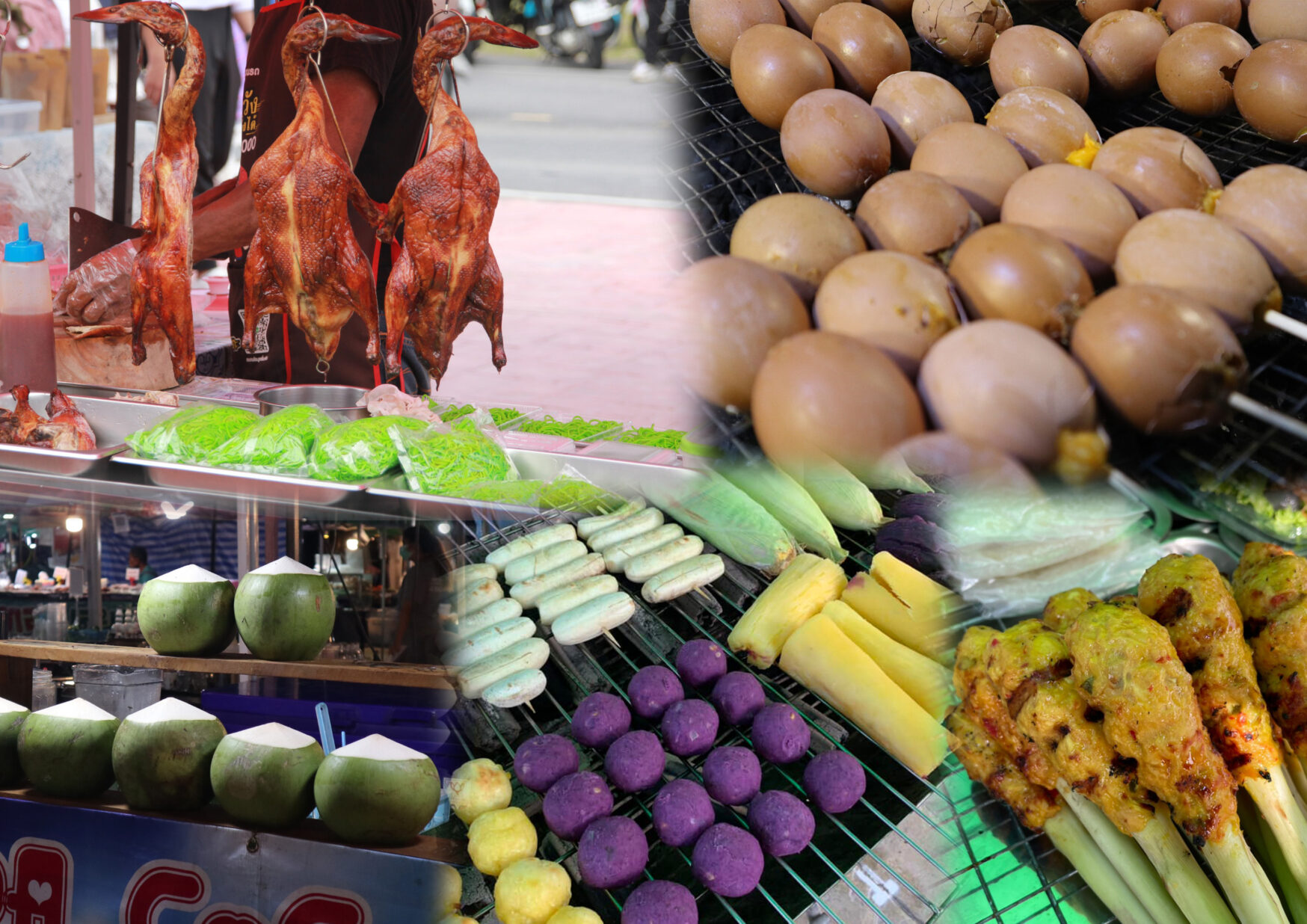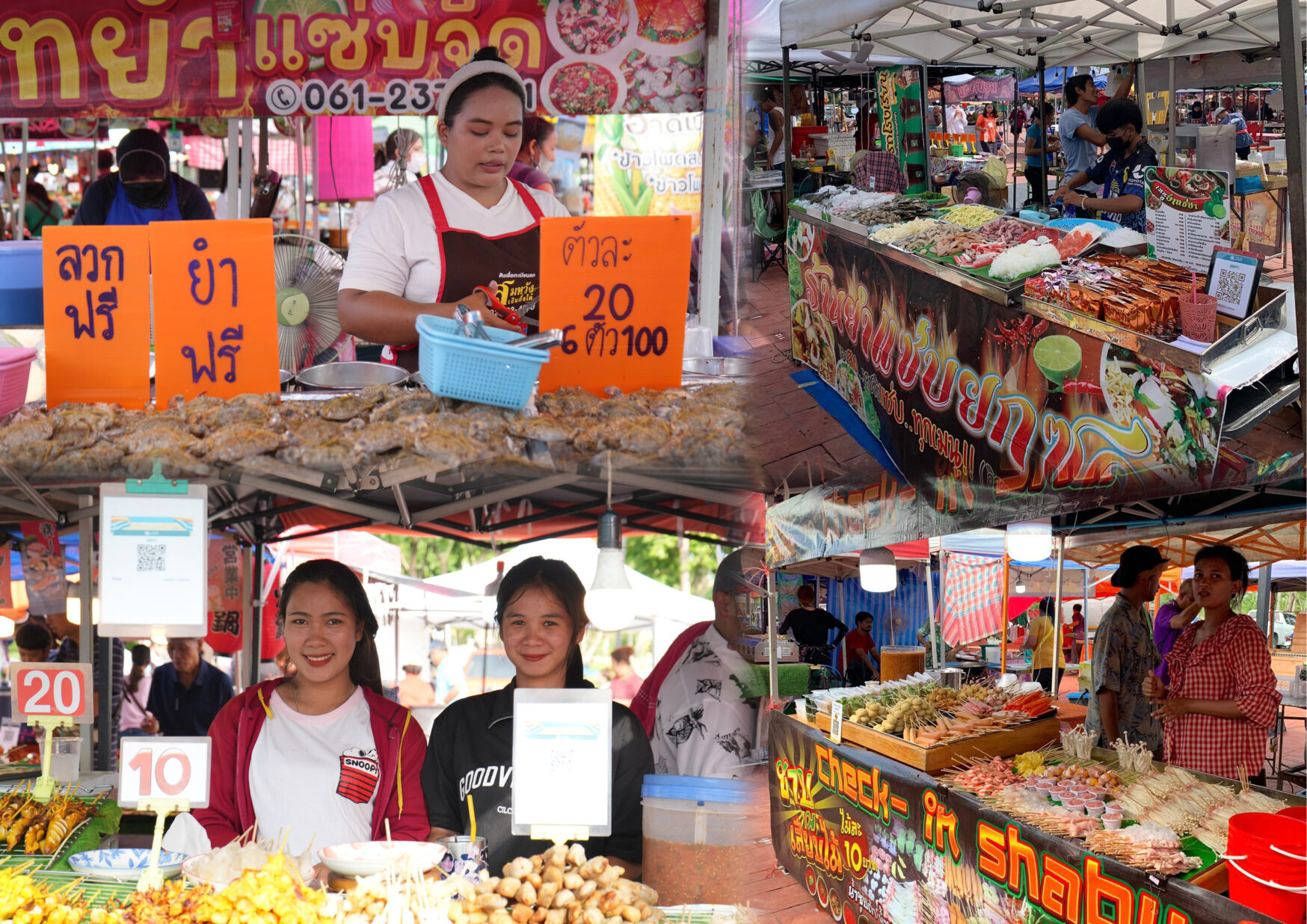Walailak University’s Ethical Selection of Food Sources Policy and Practices
Walailak University has a policy on ethical selection of food sources. This policy was initially drafted in 2017 and was reviewed in 2022. There has been consistent implementation to guide sustainable food production and consumption practices. In this regard, the university recognizes that the economic and social development of the country must rely on its natural resources as the foundation. With the increasing use of natural resources at present but limited resources, their quantity has decreased.
Walailak University has established sustainable food consumption and catering policies to control the quality of service, food, and food distribution for the benefit of students, staff, and external individuals who utilize the university’s food centers. These policies aim to encourage food providers to source and use quality, safe, and sustainable ingredients for food preparation. Walailak University emphasizes knowledge and understanding of the principles of nutritional health (as the regulations of the Department of Health), food store management, quality control, and quality service control, including understanding the rules and other practices to lead to food distribution services according to food sanitation principles. This ensures that consumers can confidently expect quality and safe food in accordance with nutritional health principles. The policy for this is implemented as follows:
- Meat and animal products, including seafood, should be derived from qualified farms certified by reliable agencies, such as Good Agricultural Practices (GAP)
- Sources of processed seafood, aquatic animals and products must not involve those in conflict with the European Union’s guidelines on illegal unreported and unregulated fishing, destructive fishing practices, overfishing practices, use of forced and child labor or unfair employment of labor in the seafood supply.
- Environmentally and socially friendly transportation of uncontaminated meat, including animal and aquatic products, must be ensured.
- Food service provides must attach importance to the principles of food hygiene and safety in all steps of food production: cleaning, raw material storage, hygienic care of cooking utensils and packaging, cooking, and distribution.
- Nontoxic fruits and vegetables should be seasonal products, locally farmed by neighboring communities, and cultivated with good agricultural practices.
- All of the food service providers on campus must attend the food safety orientation organized by the Center of Walailak University Property Management.

The university organizes training sessions for food and restaurant business operators in collaboration with the Department of Health once a year. These sessions aim to focus on establishing standards and processes for controlling the quality of food services, ensuring that consumers have confidence in the quality and safety of food according to nutritional health principles. This policy also extends its control to various markets in the university area, such as the Chan Pradu Market, the 12 community food stalls at Cho Pradu Food Center, and the Bota Green Market Chic & Chill. By emphasizing sustainable food policy and practices, a framework has been established to ensure the selection of ethical and sustainable food sources, as well as sustainable production and consumption. It takes into consideration the entire supply chain, environmental aspects, and future societal impacts.

Related link:
- https://www.facebook.com/WU-Food-Center-458478738276888
- https://am.wu.ac.th/%E0%B8%87%E0%B8%B2%E0%B8%99%E0%B8%97%E0%B8%B5%E0%B9%88-1/
- https://dsa.wu.ac.th/?p=142834
- https://botany.wu.ac.th
- https://green.wu.ac.th/the-impact-ranking/#SDG12
- https://green.wu.ac.th/wp-content/uploads/2021/11/คู่มือจัดซื้อจัดจ้างสินค้าและบริการที่เป็นมิตรกับสิ่งแวดล้อม.pdf
- https://gree n.wu.ac.th/wp-content/uploads/2021/11/นโยบายการจัดซื้อจัดจ้างที่เป็นมิตรกับสิ่งแวดล้อมมหาวิทยาลัยวลัยลักษณ์.pdf
Goal 12: Responsible Consumption and Production


